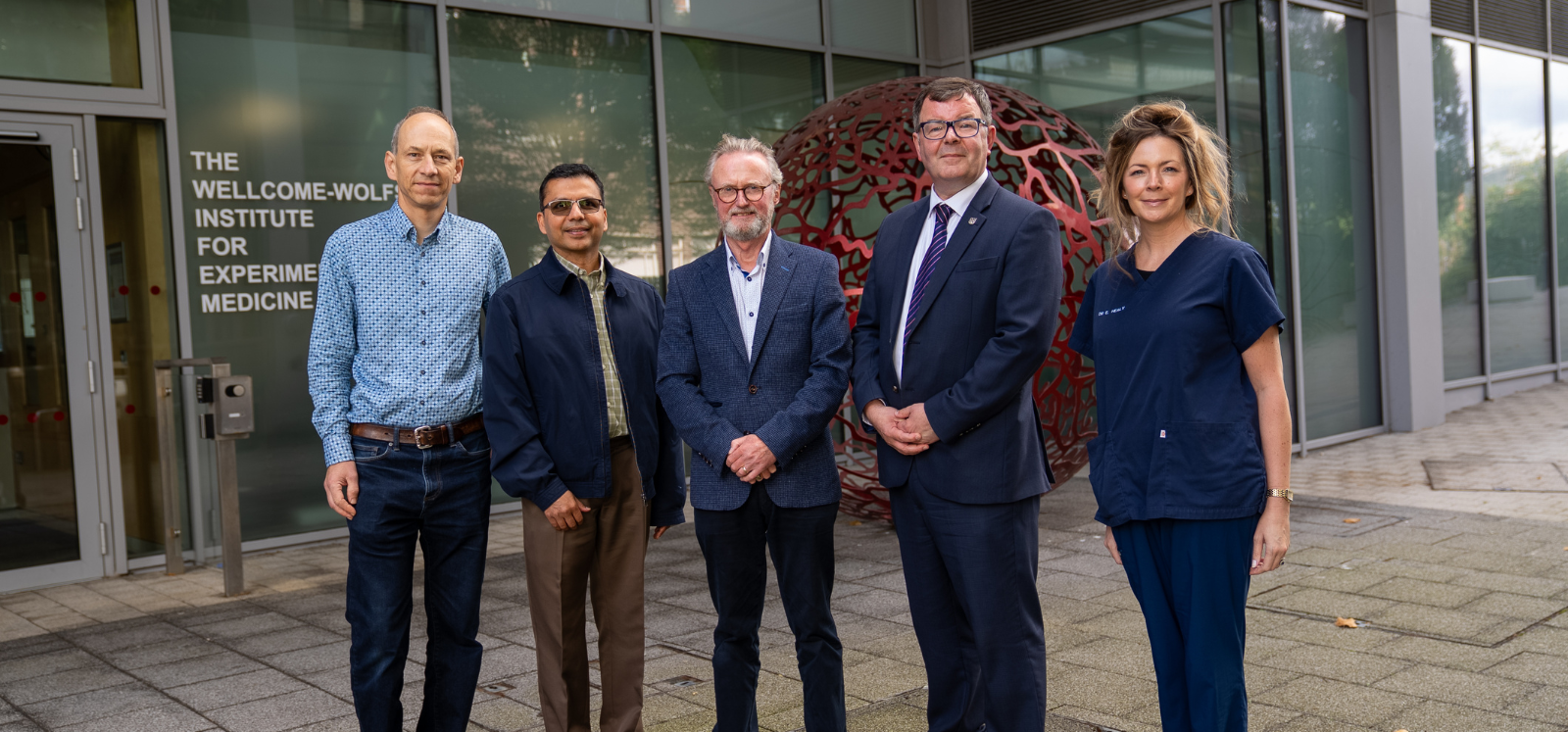Queen’s and charity join forces for faster brain tumour diagnoses
A new project at Queen’s University, supported by the charity Brainwaves NI and in partnership with the Belfast Health and Social Care Trust, is exploring whether a sequencing technology can shorten the time it takes to diagnose brain tumours

The team is investigating the use of ‘rapid nanopore sequencing’, a method capable of reading tumour DNA within hours. The approach, developed by the University of Nottingham, in partnership with Nottingham University Hospitals (NUH) NHS Trust, could reduce the wait for a confirmed diagnosis from the present standard of several weeks to just a few days - giving patients and clinicians answers far more quickly and relieving uncertainty about the precise tumour type.
Professor David Simpson, Professor of Genomics at the Wellcome-Wolfson Institute of Experimental Medicine, explained:
“Researchers have developed a new molecular approach that can deliver a tumour subtype diagnosis within hours. In this project we will show how the technology could be applied in Northern Ireland to accelerate the information flow to patients and care teams.”
Diagnosing brain tumours is particularly challenging. Many look similar under the microscope, and the exact subtype often cannot be confirmed until tissue is tested in specialist laboratories. This makes it harder to plan the best course of treatment after surgery. Faster turnaround would mean patients and their families spend less time waiting for answers, and clinicians can make treatment choices earlier and with greater confidence.
Dr Estelle Healy, Consultant Neuropathologist with the Belfast Health and Social Care Trust, said:
“This is an exciting opportunity to develop our regional service for patients, based at the Belfast Trust and to trial a technology which could be adopted routinely across the UK for faster brain tumour diagnosis.”
While the immediate focus is on reducing waiting times for post-surgical diagnosis and follow-up care, Professor Simpson noted that in future, the same technology could also be applied during surgery itself, helping surgeons make even more informed decisions in real time.
Chair of Brainwaves NI, Colin McMillan, added:
”I am delighted that Brainwaves NI has agreed to fund the Nanopore Pilot for faster diagnosis in brain cancer. We are committed to supporting research that can make a real difference to people living with brain tumours and their families. This project will make a huge difference to brain cancer diagnostics in Northern Ireland, bringing it in line with other centres across the UK. Quicker diagnoses can help alleviate some of the immense pressure and uncertainty faced by them, and we are proud to support this important work.”
Speaking about the programme, Queen’s Vice-Chancellor Professor Sir Ian Greer said:
“The research and programmes undertaken at Queen’s can very often change lives in many ways. The support provided by philanthropy can mean the delivery of better solutions to big world challenges. We are incredibly proud of the work delivered by our staff, and the programmes they deliver in collaboration with partners, charities and supporters of Queen’s, and are delighted to be working with Brainwaves NI and the Belfast Trust to support this project.”